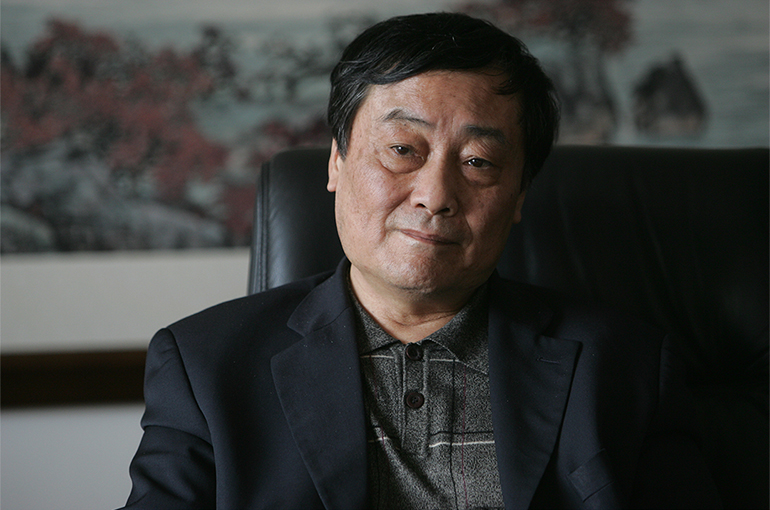 Life of Wahaha Founder Zong Qinghou Highlights China's Entrepreneurial Spirit
Life of Wahaha Founder Zong Qinghou Highlights China's Entrepreneurial Spirit(Yicai) Feb. 26 -- Zong Qinghou, the founder and chairman of bottled-water giant Wahaha Group, has died at the age of 79, ending a life of entrepreneurial success as he was named China's richest person three times.
Zong died from an undisclosed illness as medical treatment turned out ineffective, the Hangzhou-based rival of Nongfu Spring announced yesterday.
Born in 1945, Zong was one of the first private entrepreneurs in China even though he only started his first business at the mature age of 42.
Zong was born to a poor family in Xuzhou, Jiangsu province. After graduating, he started working when he was 16, mostly odd jobs and small businesses to support his family. Later, he spent 15 years farming in Zhejiang province.
It took Zong almost a decade to start his first business after leaving the countryside. In 1987, he took a risk by borrowing CNY140,000 (USD19,450) to make use of the local government's new policy to increase productivity.
Next year, Zong started making a nutritious drink for children under the brand name Wahaha, investing heavily in advertising on local television channels in Hangzhou. One year later, Wahaha's annual revenue surged to CNY27 million (USD3.8 million).
To expand production scale, Zong invested CNY80 million (USD11.1 million) to acquire a state-owned canned food factory with 2,200 employees in Hangzhou in 1991. This timely expansion propelled Wahaha's output value to reach CNY250 million (USD34.7 million) that year.
Failed Collaboration With Danone
In 1996, Wahaha established a joint venture with French food giant Danone and a Hong Kong-based investment company called Peregrine Investments Holdings, gaining advanced equipment and management style. However, the tie-up ended up falling apart due to different business philosophies.
In 1998, Danone increased its stake in the JV to 51 percent, a move that limited Wahaha's expansion. In response, Zong established separate units for original equipment manufacturing to meet Wahaha's growing business needs.
The pair began a long legal battle in 2007 regarding the use of the Wahaha trademark. After over 1,000 days of litigation, the two parties settled the case in 2009, and Danone opted out of the JV.
Attempts to Diversify
After breaking free from Danone, Wahaha entered a period of rapid growth, reaching its peak revenue of CNY78.3 billion (USD10.9 billion) in 2013. These were the golden years as Zong was ranked the richest person in China in 2010, 2012, and 2013 based on the Forbes China Rich List.
However, with the rise of new beverage brands and shifts in consumer behavior, Wahaha's sales began to decline in 2014. Zong remained resourceful with attempts to enter other industries including children's clothing, liquor, and shopping malls but ultimately failed to achieve similar success. In 2022, Wahaha's annual revenue declined to CNY51.2 billion (USD7.1 billion), down by 30 percent from its peak period.
Zong made his last public appearance last December when he attended Wahaha's annual work conference together with his daughter, Zong Fuli, who has gradually taken over management responsibilities at the beverage giant. Educated abroad, Zong Fuli was appointed vice chairman and general manager of Wahaha in December 2021.
Editors: Dou Shicong, Emmi Laine